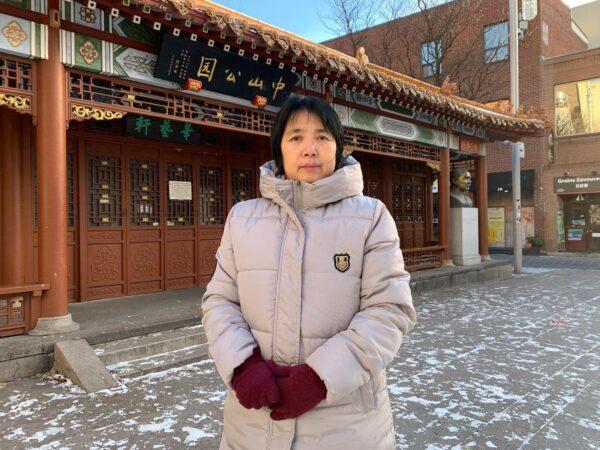A 76-year-old practitioner of Falun Gong died three days after she was released from a notorious Chinese prison, according to Minghui.org, a U.S-based website that documents the Chinese Communist Party’s (CCP) persecution of the spiritual practice.
Liu Shuhua was found to have lost her memory when guards from northeastern China’s Liaoning Women’s Prison sent her home in mid-October.
Notably, her release was more than one week ahead of the officially scheduled date—Nov. 9, by which she would complete her six-year term. Early release is rare for imprisoned Falun Gong practitioners like Liu, who refuse to renounce their beliefs.
Three days after the release, Liu died at her home in Beipiao, a satellite city of Chaoyang in northeastern Liaoning Province.
The Epoch Times cannot verify independently what had happened to the elderly woman during her time in jail or whether she suffered torture in that prison due to the lack of transparency in China’s prison system.
However, the provincial women’s prison has one of the worst records for torture since Minghui began documenting the persecution that begin in 1999. Recorded forms of torture in the prison have included the use of pepper spray, electrocution, forced exhaustive labor, sexual abuse, injection of unknown drugs, and dousing detainees with boiled water.
The prison’s authorities have persecuted at least 37 Falun Gong practitioners to death and rendered several others insane or disabled, according to Minghui.
Other women died after leaving the prison, including 50-year-old practitioner Sun Min, a teacher from Anshan City, Liaoning Province. She died during her 7-year-term in the General Hospital of the Liaoning Provincial Prison Administration on March 8, 2018, according to Minghui. She had been detained in the 12th cell area in the prison since Oct. 10, 2017.
One month before her death, on Feb. 7, her father and sister found her unable to walk alone on a prison visit. A cellmate carried Sun on her back to the meeting area. The family also found her extremely thin, weak, and unable to talk as usual, with a pus-like liquid dripping from her right ear.
In the same prison, Falun Gong adherent Lan Lihua died at 49 during her near 4-year-term on April 21, 2020.
Torture, Industrial Labor in Prisons: Survivor
Permanent Canadian resident and Falun Gong practitioner Joy Gao told The Epoch Times on Dec. 4 that she survived Liaoning Women’s Prison.“Torture is common to Falun Gong adherents there,” Gao recalled.

During her three years in jail, she was transferred from a brutal labor camp known as Masanjia to that prison. There, she spent the last year of her term until her release on July 4, 2011.
In her first week of imprisonment, she was forcibly deprived of sleep for seven days. Whenever she dozed off, cellmates in charge of monitoring her 24 hours a day would wake her up.
Gao said she witnessed a guard surnamed Liu, who was responsible for production management, slap her fellow practitioner Wei Yuhong hard on the face for failing to keep machine maintenance records.
She also testified that another fellow practitioner Lou Caihua was put into solitary confinement for passing on an article by Mr. Li Hongzhi, the founder of Falun Gong.
Gao learned in the prison that Falun Gong adherent Chen Shang was kept in a damp room and couldn’t see any sunlight all day long.
Public data shows Chen and her husband Gao Mingxing were respectively sentenced to 10-year- and 11-year-imprisonment for disseminating information about Falun Gong by tapping into a local TV network on Feb. 4 and Aug. 25, 2004.
Gao also said she witnessed a guard hitting a prisoner who failed to meet her production goal with an electric baton. “The terrible smell of scorched skin filled the room,” Gao told The Epoch Times.
All the prisoners in her cell area were forced to produce garments for domestic clients without any pay, she said.
“The CCP has industrialized its prisons in its effort to persecute Falun Gong practitioners,” Gao recounted. “In China, all prisons are production bases; prisoners are payless labor. Although China is ’the world’s factory,' most of its small commodities come from prisons.”
In 2013, Gao alone fled communist China and traveled to Thailand, seeking asylum with the United Nations. In January 2017, she was accepted as a convention refugee and moved to Montreal, Quebec Province, Canada.
The public practice of Falun Gong began in northern China during the early 1990s. Along with meditation and slow-moving exercises, practitioners adhere to the three main principles of truthfulness, compassion, and tolerance. It quickly spread through China, and somewhere between 70–100 million people were believed to have taken up the practice prior to the CCP’s persecution.





